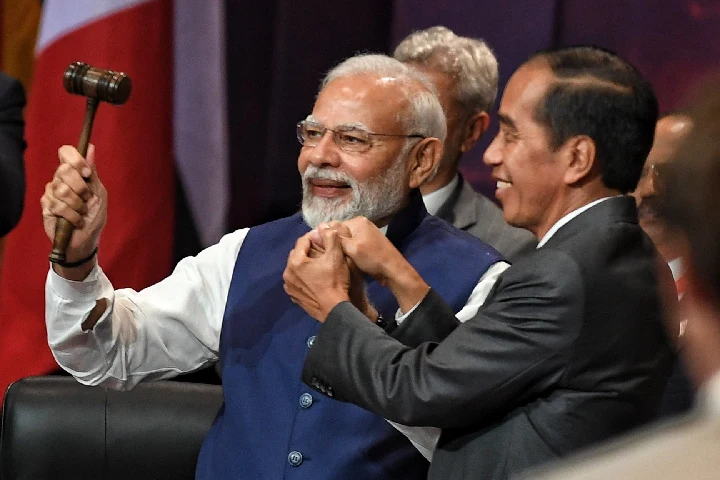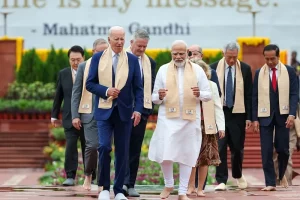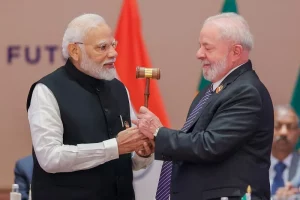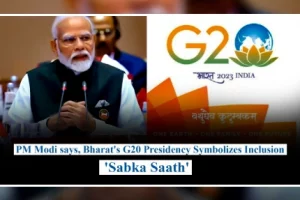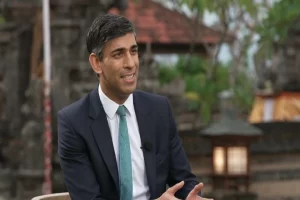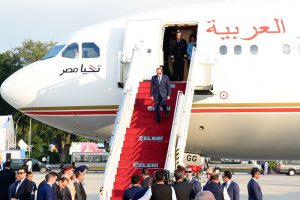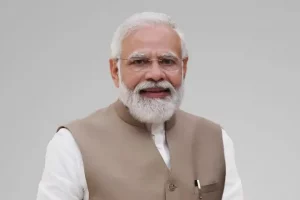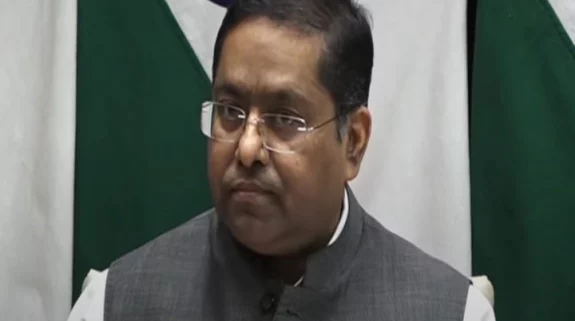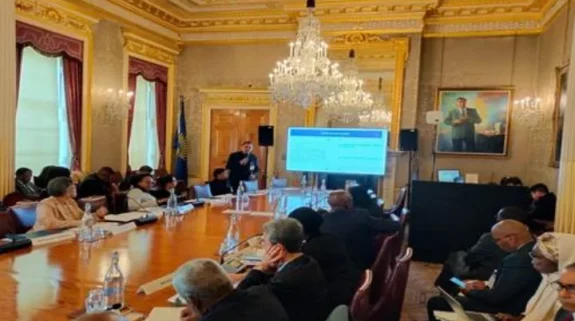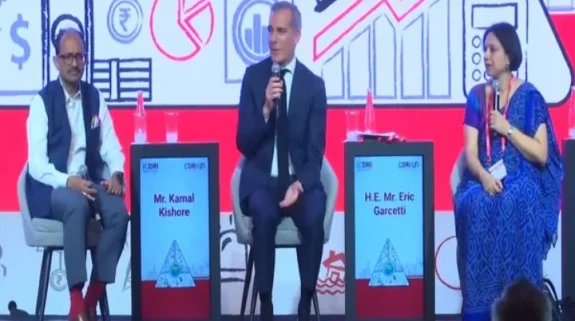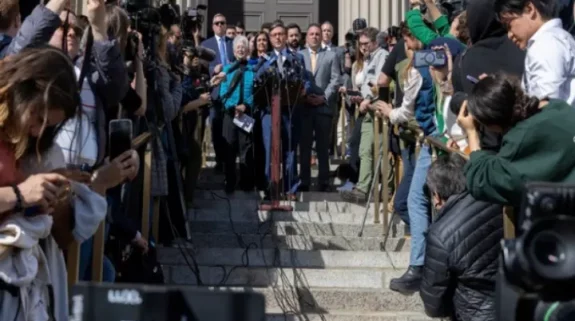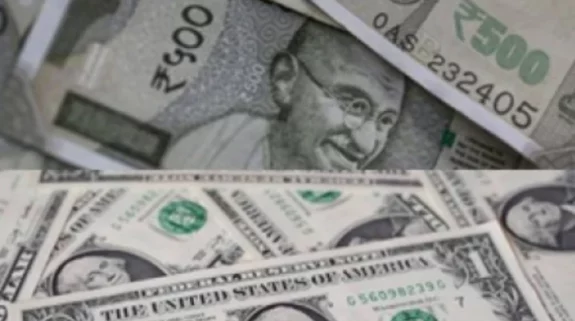Indian Prime Minister Narendra Modi formally received the baton of the Presidency of G20 (the Group of 20 countries comprising 19 large economies and the European Union) for 2023 from the Indonesian President Joko Widodo at the conclusion of the 17th G20 Summit in Bali on 16th November, 2022.
While accepting this responsibility, PM Modi said that India’s G20 presidency will be ‘’inclusive, ambitious, decisive and action-oriented.’’ He said that it will be India’s endeavour that ‘’G20 works as a global prime mover to give impetus to collective action.”
Proud moment for India as the G20 Presidency baton handed over to Hon PM Shri Narendra Modi ji at Bali. pic.twitter.com/a9OnP9LSah
— Shrinivas Dempo (@ShrinivasDempo) November 16, 2022
India’s assumption of the G20 Presidency has decisively signaled its emergence as a significant player on the global stage. While most countries in the world, both developed and developing, have found it difficult to effectively handle the challenges thrown up by the Covid-19 pandemic and the Russia-Ukraine conflict, India, through its bold and visionary leadership and prudent policies, has been able to successfully navigate the headwinds it has encountered over the last three years.
What is the G20?
The G20 is an international forum which represents the world’s biggest economies encompassing both industrialized and developing nations. Its core mandate is to address the major challenges related to the global economy, developmental issues and financial architecture, such as international financial stability, climate change mitigation, sustainable development etc.
Together, the G20 members represent 85% of the global gross product; 75% of international trade; two thirds of the world population; 80% of global investments in research and development, and 60% of the world land area.
Because the G-20 is a forum, its agreements or decisions are not legally binding but they do influence countries’ policies and global cooperation.
The G20 is small and cohesive enough to allow concrete in-person discussions to find solutions to the new challenges on the international economic and financial agenda, and is broad and inclusive enough to represent the vast majority of world economic production.
The Setting
The Bali G20 Summit was special not only because India officially received the presidency of the G20 Summit but more so, because the meeting was held at a particularly difficult and uncertain moment in international politics and economics.
The world has been subjected to huge instability and volatility over the last 3 years and more. The Covid-19 pandemic adversely affected all the 200 countries of the world in health and social as well as economic arenas.
The ongoing conflict in Europe has had global implications through high inflation, shortages of food, fertilizers and energy, unsustainable debts, supply chain disruptions and more. In addition, the challenges of climate change, terrorism, nuclear proliferation, achievement of the Sustainable Development Goals (SDGs) and others continue to unsettle the global economy and community. It is in these circumstances that India has been entrusted with the responsibility of steering the activities of the G20 in the coming year.
I have repeatedly said that we have to find a way to return to the path of ceasefire and diplomacy in Ukraine. Over the past century, the Second World War wreaked havoc in the world: PM @narendramodi#G20Summit #PMinIndonesia
— DD News (@DDNewslive) November 15, 2022
The Summit and India’s Leadership
India emerged as a ‘’leader, solution provider and consensus builder’’ at the Bali Summit. The shadow of the Russia-Ukraine conflict loomed large over the deliberations in the run up to the Summit. It was not found possible to arrive at a suitable, mutually acceptable language on the conflict in several of the G20 meetings that preceded the Summit. India was able to act as a bridge between the opposing sides on the issue, most of them supporting the position of the western bloc to criticize Russia for its attack on Ukraine, and, some others, who were reluctant to take sides in the conflict. In the final hours of the Summit, a compromise solution was achieved which reiterated the assertion by PM Modi to Russian President Vladimir Putin in Samarkand on the sidelines of the Shanghai Cooperation Organization Summit that ‘’today is not an era of war,’’ as also that the solution to the conflict should be found through ‘’dialogue and diplomacy’’ and not through war. In addition, the inadmissibility of the use or threat of use of nuclear weapons is also contained in the Bali Declaration. The Declaration covers a range of other issues, from combating climate change to eradicating corruption, and from Covid vaccination to imparting computer skills to women.
The Declaration recognizes that G20 is not the forum to resolve security problems but acknowledges that security issues can have significant consequences for the global economy. The Declaration, a 19-page document containing 52 paras and two Annexes, addresses in considerable detail the major challenges confronting the global economy and financial system.
Prior to arriving in Bali for the Summit, PM Modi tweeted that he would conduct ‘’extensive discussions with other G20 Leaders on key issues of global concern, such as reviving global growth, food & energy security, environment, health, and digital transformation.”
In his remarks in the first session on Energy and Food Security, PM Modi bluntly stated that the United Nations had failed to resolve the political and economic challenges afflicting the world. It is because of the failure of the multilateral organizations that the relevance and significance of G20 has increased. He advised that no restrictions be imposed on movement of energy as economic growth of countries, including India, which is the fastest growing major economy in the world, depends on ready availability of energy. PM Modi exhorted the countries to evolve a new world order as had been done after the Second World War. He added that it was imperative to show concrete and collective resolve to ensure peace, harmony and security in the world. He expressed confidence that ‘’next year when the G20 meets in the holy land of Buddha and Gandhi, we will all agree to convey a strong message of peace to the world.’’
Also Read: PM Modi nails five vectors that will guide India’s presidency of the G-20
While speaking on the need to make digital connectivity truly inclusive, PM Modi asserted that ‘’digital transformation is the most remarkable change of our era. The proper use of digital technologies can become a force multiplier in the decades-long global fight against poverty. Digital solutions can also be helpful in the fight against climate change’’ as was evident during remote-working and paperless green offices during Covid. PM Modi asserted that India’s experience of the past few years has shown that if digital architecture is made ‘’inclusive, it can bring about socio-economic transformation. Digital use can bring scale and speed. Transparency can be brought in governance. Last year, over 40 percent of the world’s real-time payment transactions took place in India. Similarly, India opened 460 million new bank accounts on the basis of digital identity, making India a global leader in financial inclusion. India’s open source CoWIN platform made the biggest vaccination campaign in human history, a success even during the pandemic.’’ He exhorted the global community to take a pledge to bring digital transformation in the life of every human being over the next ten years so that no person in the world is deprived of the benefits of digital technology! He committed that during India’s Presidency next year, it will work jointly with G-20 partners towards this objective. He declared that the principle of “Data for development” will be an integral part of the overall theme of India’s Presidency “One Earth, One Family, One Future”. Batting for sustainable growth, PM Modi stated that LiFE i.e. ‘Lifestyle for Environment’ campaign can make a big contribution to this. He encouraged the global community to make sustainable lifestyle a mass movement.
India will aspire to deliver outcomes in areas of critical interest such as integrating the climate and development agenda, accelerating progress towards achieving the SDG 2030 mandate, furthering development cooperation, supporting small and marginal farmers, enhancing food security and nutrition, addressing global skill gaps, promotion of blue economy and coastal sustainability, digital health solutions, green hydrogen and tech-enabled learning.
India has emerged as a strong and clear voice of the global South. Bangladesh, Egypt, Mauritius, Netherlands, Nigeria, Oman, Singapore, Spain and the UAE have been invited as “guest countries” by India at the G20 Summit next year. There has been an uncomfortable feeling among several small countries that their voices and problems do not get the attention they deserve. India will provide a platform to these countries to articulate their views, expectations and aspirations.
Bilaterals
PM Modi conducted regular, structured bilateral meetings with several world leaders including Presidents of host Indonesia and France, Chancellor of Germany, PMs of UK, Singapore, Italy, Australia, Spain, a pull-aside with the President of USA, and exchange of pleasantries with the President of China. PM Modi’s bonhomie and camaraderie with world leaders was on full display at the Bali Summit. Such close rapport helps not only to advance India’s bilateral relations with these countries but will also prove extremely helpful in ensuring a successful outcome of India’s G20 Presidency next year, notwithstanding that it takes place during a period when the world is fraught with many fault lines and fissures among major countries of the world.
Conclusion
Accepting the G20 Presidency, PM Modi declared that India will organize G-20 meetings in different cities and states of the country. Visitors to India will get full experience of its amazing diversity, inclusive traditions, and cultural richness. He invited all G20 members and international organizations ‘’to participate in this unique celebration in India, the ‘ ‘Mother of Democracy’’’.
India’s Presidency will commence from 1st December, 2022. India will hand over the baton to Brazil at the end of November, 2023. It is for the first time in the history of the G20 that the troika comprising the current, past and future Presidencies will comprise three major developing and emerging economies. This provides a unique opportunity to India, supported by Indonesia and Brazil, to make a significant contribution to peace, security, stability and prosperity in the world. India looks forward to its Presidency of the G20 with determination and confidence.
Also Read: India assumes leadership on world stage with G-20 Presidency
(Ashok Sajjanhar is a former Ambassador of India to Kazakhstan, Sweden and Latvia. He is an Executive Council Member at the Manohar Parrikar Institute for Defence Studies and Analysis and President, Institute of Global Studies. Views expressed are personal and exclusive to India Narrative)






